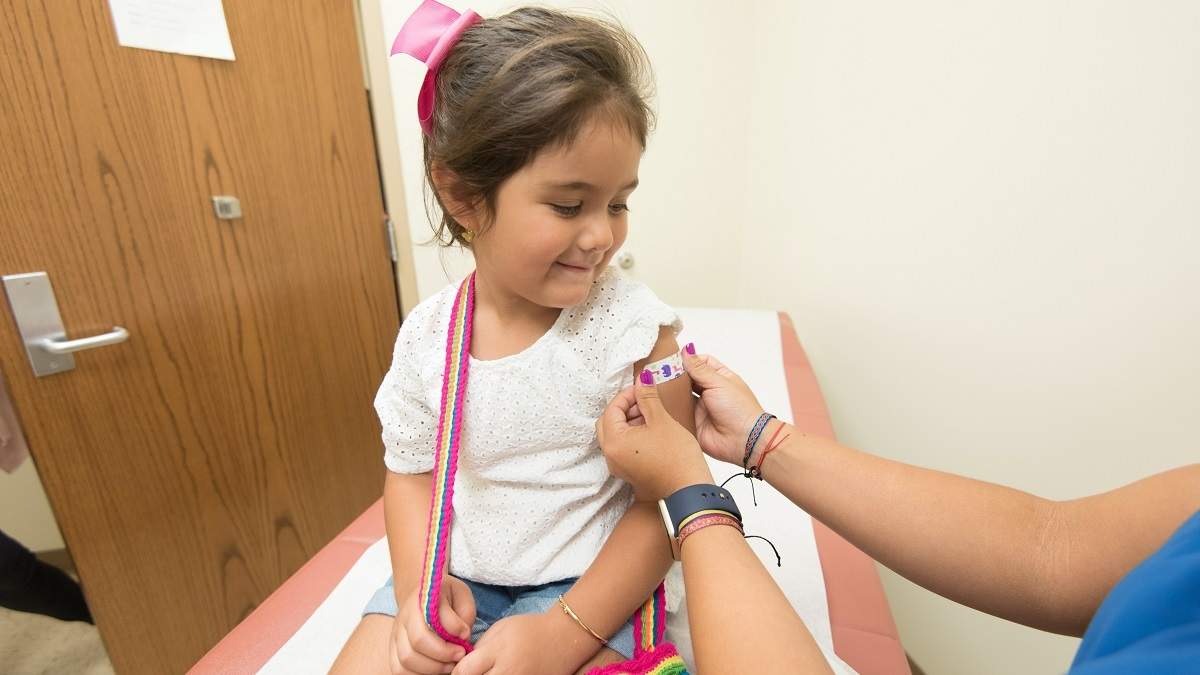With new Covid-19 vaccines beginning to be rolled out around the world , it’s never been more important to understand the facts about vaccinations and why they’re so important for our health. Vaccinations prevent up to 3 million deaths worldwide every year, but in the face of overwhelming evidence about the efficacy and safety of vaccines, many people continue to insist that they are unsafe and regard them with a skeptical eye. Perpetuating widespread myths about vaccinations is dangerous, as it discourages people from taking steps to protect themselves and their children from harmful diseases, as well as those around them.
The Covid-19 pandemic has opened our eyes to how our actions affect the safety of those around us. We need to regard having vaccinations not just as a measure for personal protection, but as a social responsibility; vaccinations help protect not just those receiving them but those in our community who cannot. In a time like this, it’s paramount that we work to promote medical facts and discredit medical myths, to make sure that those around us are correctly informed about how to keep themselves and others safe. To this end, in what follows, we lay out the key myths surrounding vaccinations and explain why they’re so important for the health of our society.
How vaccinations work
Pathogens are organisms, such as bacteria and viruses, that cause diseases. When pathogens enter the bloodstream, the body’s immune system releases antibodies to fight them. The part of a pathogen that causes the formation of antibodies is called an antigen. Each antibody is trained to recognize one specific antigen. When the body is exposed to an antigen it has not seen before, it takes a while for the immune system to produce antibodies to fight off that specific pathogen. Once the body creates antibodies in response to an antigen, it also creates antibody-producing memory cells which remain in our system after the pathogen has been destroyed. If the body is exposed to that pathogen again, the antibody response will be much faster because of the memory cells.
Vaccines typically contain weakened antigens that trigger an immune response in the body. Newer vaccines contain the blueprint for producing antigens rather than the antigen itself. Weakened versions of antigens do not cause the actual disease to occur in the person who receives the injection. However, the immune system will respond as though it is being attacked by the pathogen and produce memory cells. If the body is then attacked by these pathogens again in the future, the immune system’s response will be much more rapid and will be better equipped to fight off the pathogen before the person becomes ill.
History of vaccinations
Edward Jenner was an English country doctor in the late 18th century who pioneered the concept of vaccinating and developed the smallpox vaccine.
Whilst he was a student, he noticed that milkmaids who had become infected with cowpox did not catch smallpox. In 1796, Jenner took fluid from a cowpox blister and scratched it into the skin of eight-year-old James Phipps. He developed a blister but soon recovered. Jenner then inoculated Phipps with smallpox and no disease followed. With that, the concept of vaccinating was born.
In the 19th and 20th centuries, scientists followed Jenner’s example to develop new vaccines to combat many deadly diseases such as measles, tetanus, typhus, and hepatitis B.
Vaccination myths
Here are some of the key myths and misconceptions surrounding vaccinations.
- Vaccinations are not safe for children or babies
Vaccinating your baby or child is the best way to protect them from becoming infected with life-threatening or debilitating diseases such as measles, mumps, or rubella.
- Vaccines cause autism
A controversial 1998 study proposed a link between autism and the MMR vaccine. However, that study has been debunked and was eventually retracted in 2010. All evidence shows that the MMR vaccine is the safest and most effective way to protect against measles, mumps, and rubella.
- Antibiotics eliminate the need for vaccines
Antibiotics do not treat measles, a highly contagious infection.
- Vaccines weaken the immune system
It’s safe to give children several vaccines at a time without worrying that it will overload their immune system. Vaccinations contain weakened antigens and are not harmful to the immune system.
- Vaccinations cause allergies
Vaccinations do not cause allergies, however, experiencing an allergic reaction after having a vaccination is possible, although very rare. If an allergic reaction does occur, it will usually do so within a few minutes of having the injection and the medical professionals on hand will be trained to deal with it quickly and effectively.
- Vaccinations will give you the disease that they are trying to prevent
As we mentioned above, vaccinations contain weakened and sometimes destroyed antigens which cannot cause the disease to occur in the person who receives the injection.
Facts about vaccines
- They protect us and our communities from serious diseases
- They are tested, often for years, to ensure that they’re safe to administer, and are then continuously monitored for side effects.
- They sometimes cause mild side effects that don’t last long such as a temperature, fatigue, or a headache. You can also experience temporary soreness or aching around the injection site. Serious side effects only occur in extremely rare cases.
- Most childhood vaccines are 85% to 95% effective.
- All evidence points towards the fact that vaccinations are the safest and most effective way to protect us from numerous harmful diseases.
Live and killed vaccines
Vaccines are sometimes split into two categories: live vaccines and killed vaccines. Live vaccines contain weakened viruses or bacteria and cannot be administered to those with weakened immune systems, for example, people with cancer or HIV. Live vaccines provide long-term protection.
Killed vaccines contain destroyed viruses or bacteria. Unlike live vaccines, killed vaccines can be administered to those with weakened immune systems but they do require subsequent doses or booster injections.
The flu vaccination
The flu is a very common virus that can be life-threatening in older people or people with long-term health conditions. If you’re at a higher risk from coronavirus, you’re also more at risk of problems from the flu. It’s very important to get a regular flu vaccination if you fall into one of these categories.
The CDC estimates that influenza has resulted in between 12,000 and 61,000 deaths annually in the US since 2010. The vaccination is effective at lowering the risk of infection by up to 60%.
List of important vaccinations
Below is a list of important vaccinations that are commonly administered through childhood into adulthood. However, this list is not exhaustive.
By the time your child starts elementary school, they should have received the following:
- Hepatitis B vaccine
- DTaP (diptheria, tetanus, pertussis) vaccine
- Haemophilus influenza type b vaccine (Hib)
- Pneumococcal conjugate vaccine (PCV)
- Inactive poliovirus vaccine (IPV)
- Measles, mumps and, rubella (MMR) vaccine
- Varicella (chickenpox) vaccine
- Rotavirus (RV) vaccine
- Influenza vaccine
As your child grows older, your doctor may recommend the following vaccines:
- Hepatitis A vaccine
- Yearly influenza vaccine
- Human papillomavirus vaccine
- Meningococcal vaccine
- Tdap booster
Doctors recommend that adults receive the following vaccines:
- Annual flu shots
- Pneumonia vaccines
- Tetanus boosters
Why vaccinations are so important
Vaccines play an essential role in protecting ourselves and our communities from potentially life-threatening diseases and infections. If enough people get vaccinated against dangerous infections, communities can achieve herd immunity. Some people with underlying health conditions such as cancer or (link to HIV blog post when uploaded) cannot get vaccinated as their immune systems are too weak. However, these vulnerable people can still be protected from infection if those around them get vaccinated, creating a sort of protective bubble. If people choose not to get vaccinated against dangerous infections, they are not only putting themselves at risk but are also risking the health of those around them who are more vulnerable and unable to have vaccinations.
Thanks to vaccinations, diseases such as measles have been reduced by up to 99.9% since the vaccines were introduced, and polio cases have decreased by more than 99%
Vaccinations are especially important when you’re pregnant because they don’t just protect you, they also protect your baby. CDC recommends women who are trying to get pregnant have the MMR vaccine. Whilst pregnant, CDC recommends that women also get vaccinated against whooping cough and influenza virus.
Tips for overcoming injection anxiety
If you have a phobia of needles or experience injection anxiety, then getting a vaccination can be a very nerve-racking experience. Here are some tips to help you overcome injection anxiety:
- Remind yourself that in getting a vaccine you are taking important steps to protect yourself and your community from dangerous infections and that however nerve-racking it can be, it is an extremely important process.
- Try to remember that injections are safe and effective
- Keep yourself busy before your appointment so that you can distract yourself from worrying
- Try some breathing techniques to calm yourself down. Breathe in slowly through your nose and out through your mouth, as deeply as feels comfortable, and try to maintain a regular rhythm.
- Have plenty of water and food before your appointment to maintain your blood sugar levels and to help combat any faintness you might feel
- Talk to the person administering it about how you are feeling
- When it comes to having the injection, relax your arm; tensing the muscles will make the injection more painful
- Continue to breathe deeply whilst you are having the injection
- Don’t look at the needle if this makes you feel uncomfortable. Instead, focus on a spot in front of you and count in your head.
Conclusion
Despite the skepticism that some people experience towards vaccinations, there’s no denying that having a vaccination and dealing with any possible side effects is much safer than not having it at all and being infected with a harmful disease that could easily have been prevented. If you are concerned about vaccinations, speak to your doctor, who will be able to offer you advice and information, and help make you feel more comfortable about the process.



